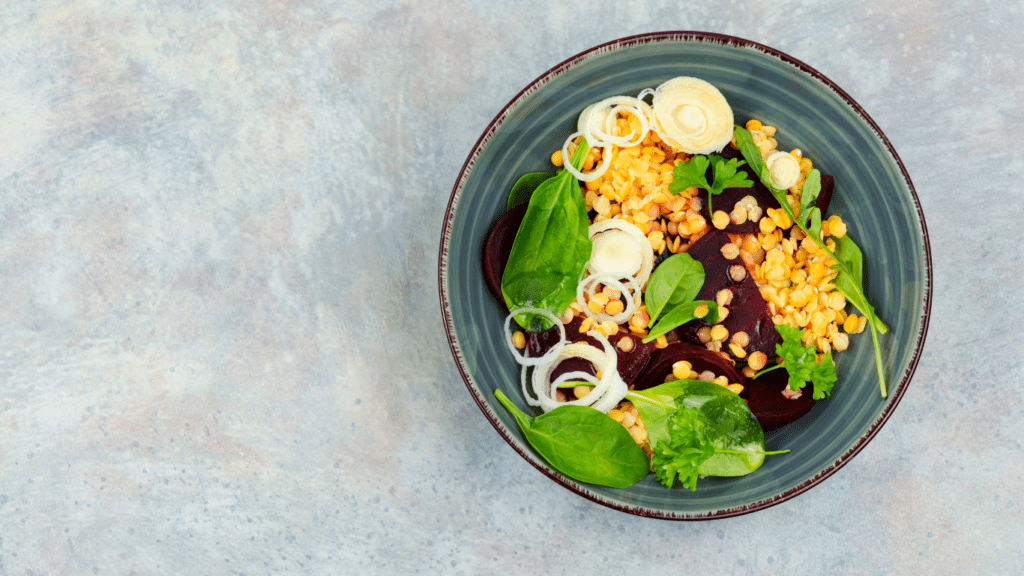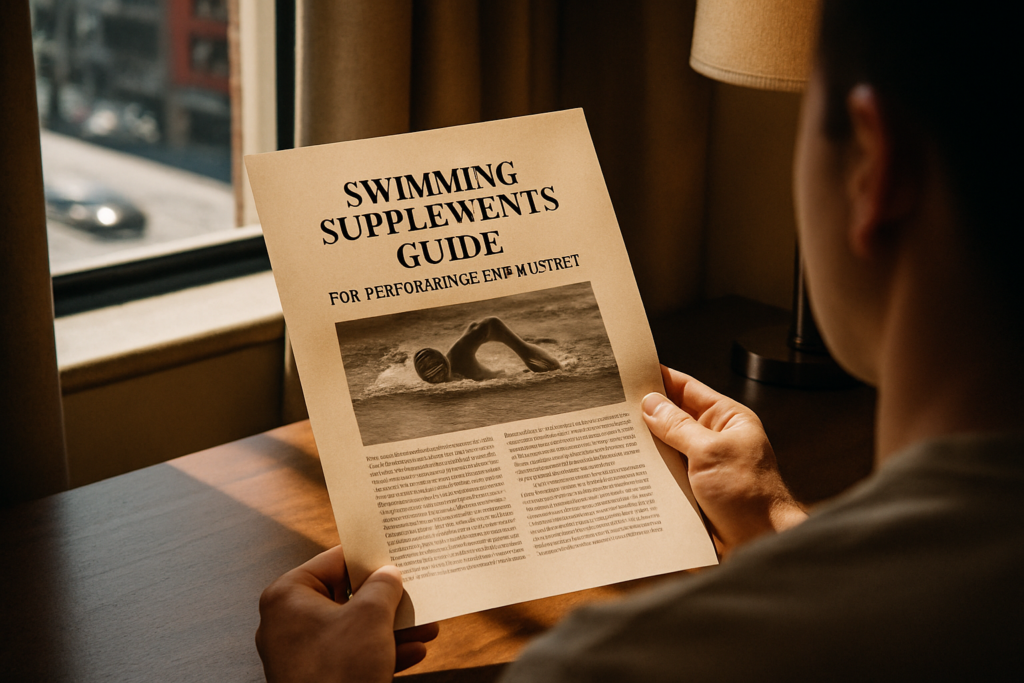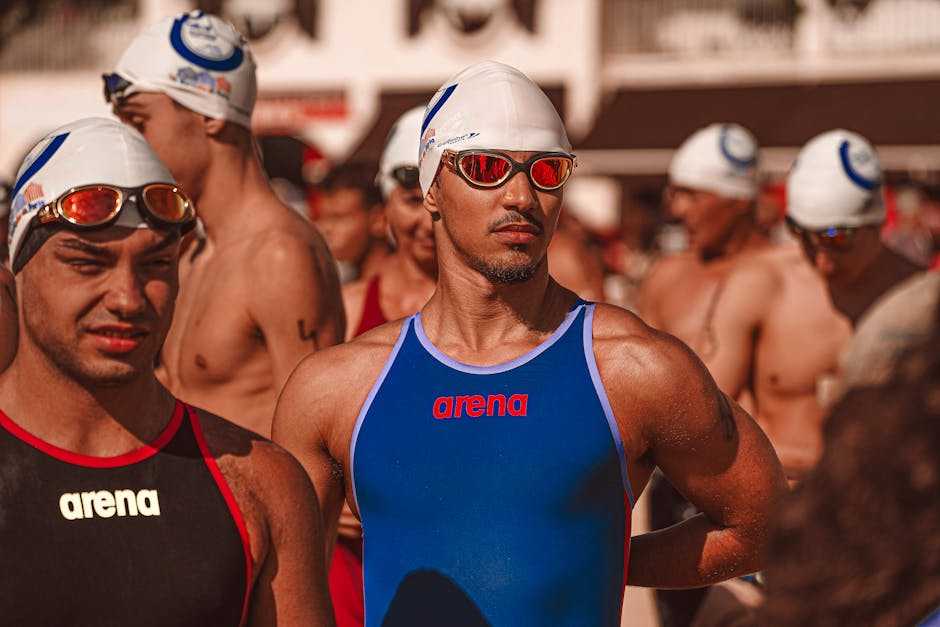As a seasoned swimmer, I understand the importance of fueling my body with the right nutrients to enhance performance in the water. Transitioning to a plant-based diet has been a game-changer for me, improving my stamina and recovery. In this article, I’ll delve into the benefits of vegan and vegetarian diets for swimmers, exploring how these dietary choices can optimize athletic performance and overall health.
Swimmers require a well-balanced diet rich in protein, vitamins, and minerals to support muscle repair and endurance. Contrary to common misconceptions, vegan and vegetarian diets can provide all the essential nutrients needed for peak performance in the pool. By focusing on plant-based sources of protein, carbohydrates, and healthy fats, swimmers can meet their dietary requirements while reaping the benefits of a cruelty-free and sustainable lifestyle.
Whether you’re a competitive athlete or a recreational swimmer looking to improve your diet, understanding the impact of plant-based nutrition on swimming performance is key. Join me as we explore the world of vegan and vegetarian diets tailored specifically for swimmers.
The Nutritional Components of Vegan and Vegetarian Diets
When considering the nutritional components of vegan and vegetarian diets for swimmers, it’s essential to ensure that they meet the specific needs of athletes for optimal performance in the water.
Essential Nutrients for Swimmers
As a swimmer following a vegan or vegetarian diet, I focus on key nutrients crucial for performance. These include:
- Protein: I ensure an adequate intake through plant-based sources like legumes, tofu, and quinoa to support muscle maintenance and repair.
- Iron: To prevent fatigue and optimize oxygen transport, I consume iron-rich foods such as lentils, spinach, and pumpkin seeds.
- Omega-3 Fatty Acids: Incorporating flaxseeds, chia seeds, or walnuts into my meals helps reduce inflammation and support cardiovascular health.
- Vitamin B12: I take supplements or consume fortified foods to meet this essential nutrient often lacking in plant-based diets.
Comparing Vegan and Vegetarian Nutritional Profiles
When comparing vegan and vegetarian nutritional profiles for swimmers like me, both diets offer benefits with slight differences:
- Vegan Diet: As a vegan swimmer, I avoid all animal products but ensure adequate protein intake from sources like soy products, beans, and nuts. I focus on fortified foods for B12 and calcium.
- Vegetarian Diet: Opting for a vegetarian diet, I include dairy and eggs for protein and calcium. It provides flexibility in meeting nutrient needs compared to a vegan diet.
By understanding the essential nutrients in vegan and vegetarian diets and their impact on swimmer performance, I can tailor my dietary choices to support my athletic goals effectively.
Benefits of Vegan and Vegetarian Diets for Swimmers

Being a swimmer, I know the immense importance of fueling my body with the right nutrients for optimal performance in the water. Here, I’ll delve into the specific benefits of vegan and vegetarian diets for swimmers to help you understand how these dietary choices can enhance your swimming capabilities.
Enhanced Recovery and Endurance
As a swimmer following a vegan or vegetarian diet, I’ve experienced firsthand the accelerated recovery times and improved endurance levels that come with these plant-based eating patterns. Plant-based diets are rich in antioxidants and anti-inflammatory compounds that aid in reducing muscle soreness and inflammation post-workout. By consuming a variety of fruits, vegetables, whole grains, nuts, and seeds, swimmers can promote quicker muscle repair and recovery, ultimately leading to enhanced performance during training and competitions.
Positive Environmental Impact
One of the key benefits of adopting a vegan or vegetarian diet as a swimmer is the positive environmental impact it has. Plant-based diets require fewer natural resources, produce lower greenhouse gas emissions, and contribute to overall sustainability. By choosing plant-based protein sources over animal products, swimmers can actively participate in reducing their carbon footprint and supporting environmental conservation efforts. Making eco-conscious dietary choices not only benefits personal health but also aligns swimmers with environmentally friendly practices that promote a healthier planet for future generations.
Common Challenges and Solutions
When it comes to following a vegan or vegetarian diet as a swimmer, there are some common challenges that may arise. Below, I’ll address how to overcome these challenges effectively.
Meeting Protein Requirements
As a swimmer on a plant-based diet, ensuring adequate protein intake is crucial for muscle repair and growth. To meet protein requirements, I include a variety of plant-based sources such as beans, lentils, tofu, tempeh, nuts, and seeds in my meals. These foods not only provide protein but also offer essential nutrients and fiber important for overall health. By planning my meals wisely and incorporating a balance of protein-rich plant foods throughout the day, I can easily meet my protein needs without relying on animal products.
Ensuring Sufficient Calorie Intake
Maintaining sufficient calorie intake is essential for swimmers to support their energy levels and performance. While plant-based diets can be rich in nutrients, they may sometimes be lower in calorie density. To ensure I am consuming enough calories, I focus on including calorie-dense plant foods such as avocados, nuts, seeds, and healthy oils in my diet. Additionally, incorporating whole grains like quinoa, brown rice, and oats can provide sustained energy for my training sessions. By being mindful of my calorie intake and choosing nutrient-dense foods, I can fuel my body effectively while following a vegan or vegetarian diet as a swimmer.
Dietary Recommendations and Meal Planning
When it comes to meeting the nutritional needs of swimmers following vegan or vegetarian diets, careful planning is key. Ensuring adequate intake of essential nutrients is vital for optimal performance and overall health. Below are some recommendations and strategies to guide meal planning for swimmers on plant-based diets:
Sample Meal Plans for Training Days
- Breakfast:
A hearty smoothie made with plant-based protein powder, banana, spinach, and almond milk.
Whole grain toast topped with avocado and cherry tomatoes. - Lunch:
Quinoa salad with mixed vegetables, beans, and a tahini dressing.
Sliced oranges for a refreshing touch. - Snack:
Handful of mixed nuts and seeds for a quick energy boost.
Carrot sticks with hummus for a satisfying crunch. - Dinner:
Lentil curry with brown rice and steamed broccoli.
Mixed berry dessert with coconut yogurt.
Supplements: Swimmers on vegan or vegetarian diets may consider supplementing with vitamin B12, omega-3 fatty acids, and iron to address potential deficiencies.
Superfoods: Incorporating superfoods like chia seeds, spirulina, and hemp seeds can add a nutritional boost to meals and support overall well-being.
Hydration: Don’t forget the importance of proper hydration. Hydrating with water, coconut water, or electrolyte drinks is crucial for swimmers to maintain performance and aid in recovery.
By carefully planning meals and incorporating a variety of nutrient-dense foods, swimmers on vegan and vegetarian diets can effectively meet their nutritional needs, support their training, and enhance their performance in the pool.


 is a dedicated fitness enthusiast with a deep-seated passion for swimming and holistic health. Leveraging her extensive background in competitive swimming and personal training, she provides readers with expert advice on optimizing their workouts and enhancing their overall well-being. Kiara's writing stands out for its blend of motivation and practical tips, making complex fitness concepts accessible and actionable. She is committed to helping individuals of all levels reach their fitness goals by promoting a balanced approach to exercise and nutrition. In her articles on Swim Fast Stay Fit, Kiara shares her personal experiences, training techniques, and strategies for overcoming common fitness challenges, inspiring others to lead healthier and more active lives.
is a dedicated fitness enthusiast with a deep-seated passion for swimming and holistic health. Leveraging her extensive background in competitive swimming and personal training, she provides readers with expert advice on optimizing their workouts and enhancing their overall well-being. Kiara's writing stands out for its blend of motivation and practical tips, making complex fitness concepts accessible and actionable. She is committed to helping individuals of all levels reach their fitness goals by promoting a balanced approach to exercise and nutrition. In her articles on Swim Fast Stay Fit, Kiara shares her personal experiences, training techniques, and strategies for overcoming common fitness challenges, inspiring others to lead healthier and more active lives.
